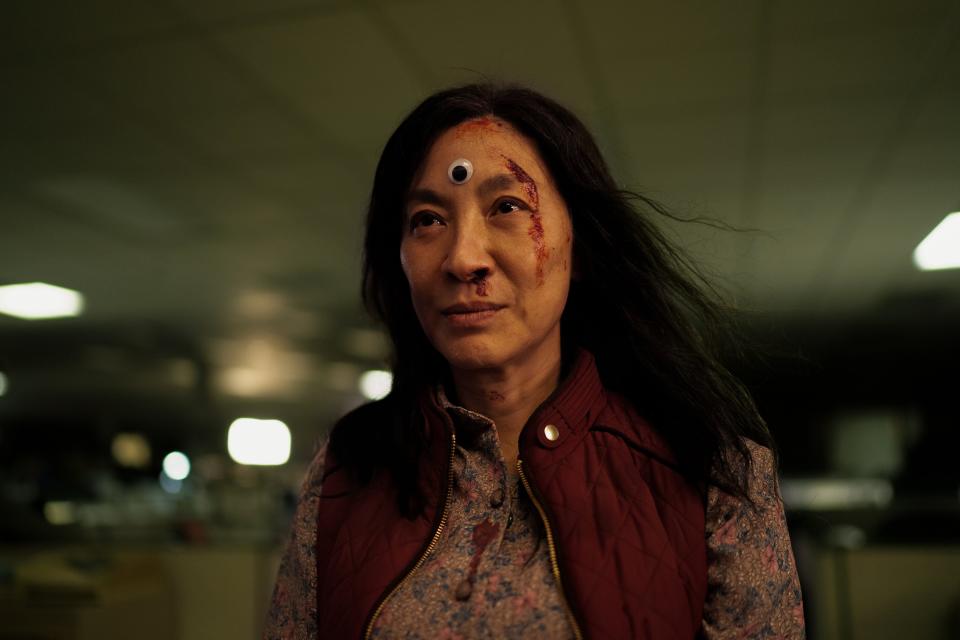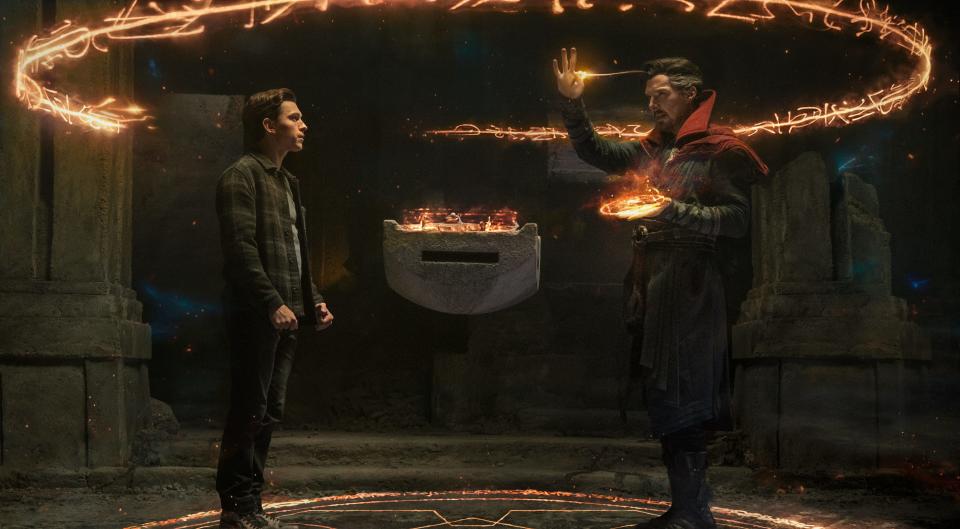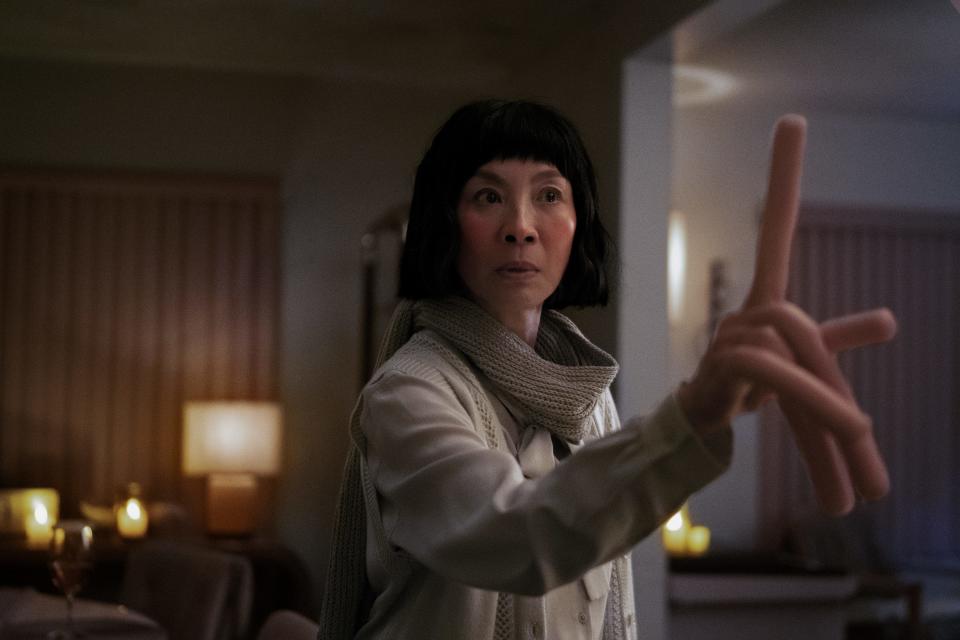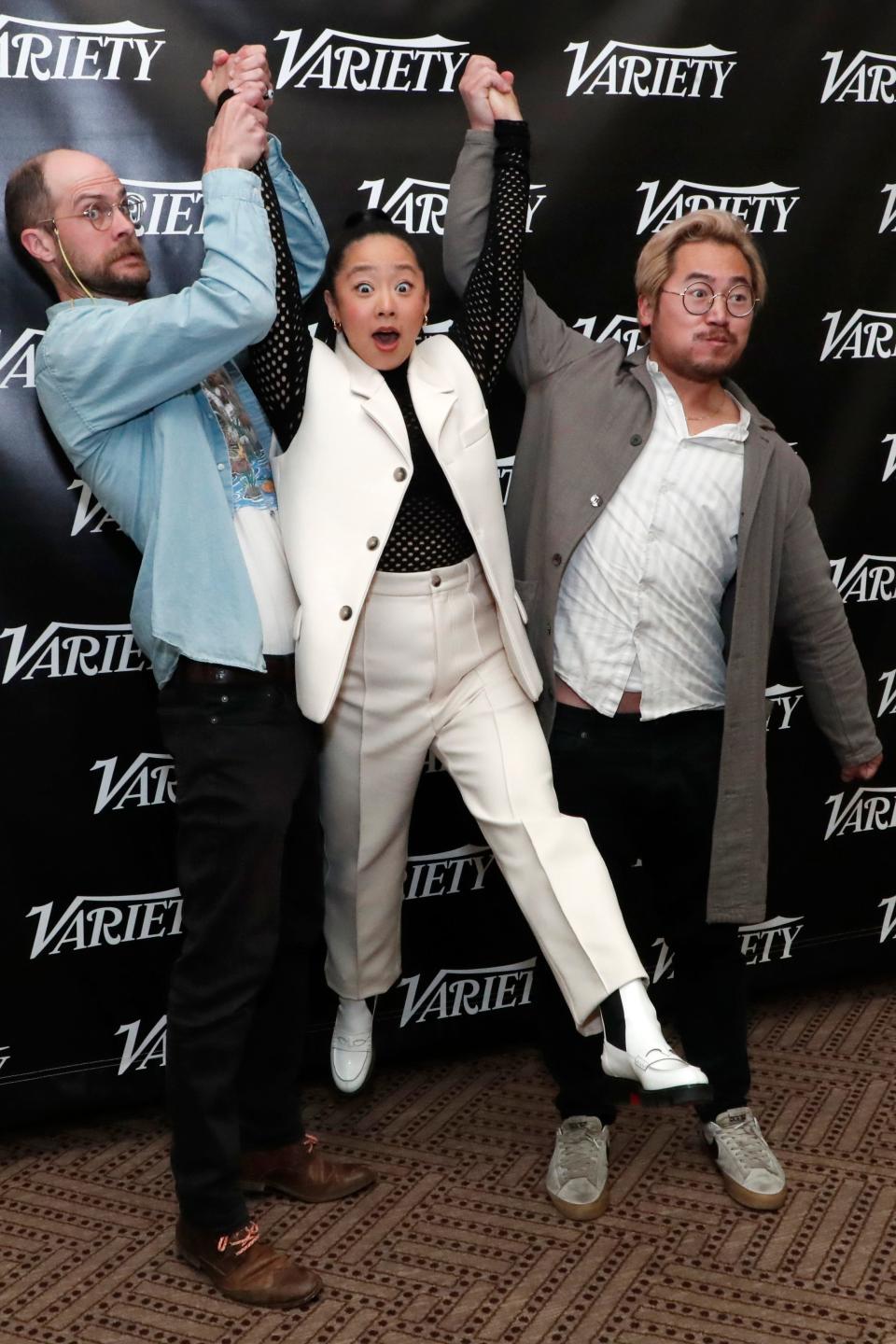Why the multiverse is 'Everywhere' right now, from 'Doctor Strange' to Michelle Yeoh's new movie
Imagine discovering one day that there are dozens of versions of yourself out there in other universes. One might be a custodian or a movie star. Another is a chef, a rock, a pi?ata, or a person with hot dog fingers.
That's the bizarre predicament Evelyn Wang (Michelle Yeoh), a Chinese immigrant and laundromat owner, finds herself in in the kaleidoscopic "Everything Everywhere All at Once" (now in theaters), a martial arts/sci-fi comedy about family bonds that transcend time and space.
The critically beloved film is just the latest piece of pop culture to delve into the concept of the multiverse, which suggests that there are many universes existing parallel to each other. These alternate timelines of Earth may differ from ours in small or tectonic ways.
Review: Michelle Yeoh's reluctant heroine powers dazzling, dizzying 'Everything Everywhere'

The idea that these concurrent realities are somehow connected is paramount to movies such as "Spider-Man: No Way Home" and the animated "Spider-Man: Into the Spider-Verse," in which multiple versions of Peter Parker and Spider-heroes team up to fight evil. After Aaron Taylor-Johnson's Quicksilver was killed in "Avengers: Age of Ultron," Marvel's Disney+ series "WandaVision" unlocked the multiverse by bringing Evan Peters' version of the character from the "X-Men" franchise into the fold.
Benedict Cumberbatch will play different versions of his titular sorcerer in next month's "Doctor Strange and the Multiverse of Madness," while former Batmen Michael Keaton and Ben Affleck are set to don the cape and cowl once again in next year's "The Flash," a new DC film centered on Ezra Miller’s superhero.

Multiverse stories are good for business, even better for storytelling
Parallel universes and multiple universes have been a staple of comic books for decades, as a means of reintroducing old characters and raising the stakes for new ones. Alternate dimensions became a TV fixture thanks to classic sci-fi series such as "Star Trek" and "Doctor Who," as well as more recent shows including "Rick and Morty," "Stranger Things" and Marvel's "Loki” and “What If…?”
For studios, it's lucrative from a business standpoint to incorporate multiverse storylines.
"It's a way to bring back fan-favorite characters but also invest some added relevance to older properties or iterations of a character," says Joe Praska, a contributor to pop culture website Twin Cities Geek. "It infuses a new sense of nostalgia for these movies that may not have been there before. Now people want to go back and revisit the Keaton Batman flicks and the previous Spider-Man franchises, and boom! They're back in the pop-culture discourse once again and in a new way."
But multiverse theory also opens the door for richer storytelling, allowing us "to hold a mirror to beloved characters and see how they could have turned out had they faced different circumstances, made a different choice somewhere, or simply traveled a different path," Praska says. "Ultimately, it roots back to asking those questions in our own lives: 'What if we would have turned left instead of right at the fork in the road back there?' In a sense, this can allow us to better grapple with those questions for ourselves."

'Everything Everywhere All at Once' taps into big questions on and offline
Daniel Kwan and Daniel Scheinert, who are collectively known as the Daniels, started writing "Everything Everywhere" in 2016 as a way to explore mental health, family dynamics and existential angst. Inspired by director Charlie Kaufman, as well as writers Kurt Vonnegut and Douglas Adams, the filmmaking duo was drawn to the challenge of crafting a multiverse story, given how seemingly "uncinematic" the concept is.
"When I think about an infinite number of universes, I just think about meaning and narrative breaking down," Scheinert says. "But there's something about the multiverse that's relatable these days, when everybody is living out multiple lives on the internet, depending on which username and platform you're on, and you're also stumbling into other people's bubbles and subcultures. So there's something about it that feels not that high concept."
"We're already living in the multiverse," Kwan adds.

Stephanie Hsu plays Evelyn's queer daughter, Joy, who struggles to be seen and understood by her mom, and squares off against Evelyn in concurrent universes throughout the movie. The actress believes we're attracted to multiverses for reasons that go even deeper than our fractured online personas.
"Even though we're in a semi-nihilist time, I think there is a resurgence of spirituality," Hsu says. "Just feeling like, 'What is this whole life thing? Why did I choose that path? Oh my gosh, I was just thinking of this person and then they called me five minutes later.' It feels like we are operating sometimes on a frequency outside of our physical plane.
"It's also a very confusing time, so a multiverse story is a way of tapping into this question of, 'Why is this reality the way that it is? Is it the only reality and does it work?' "
This article originally appeared on USA TODAY: 'Everything Everywhere' directors explain our multiverse obsession
